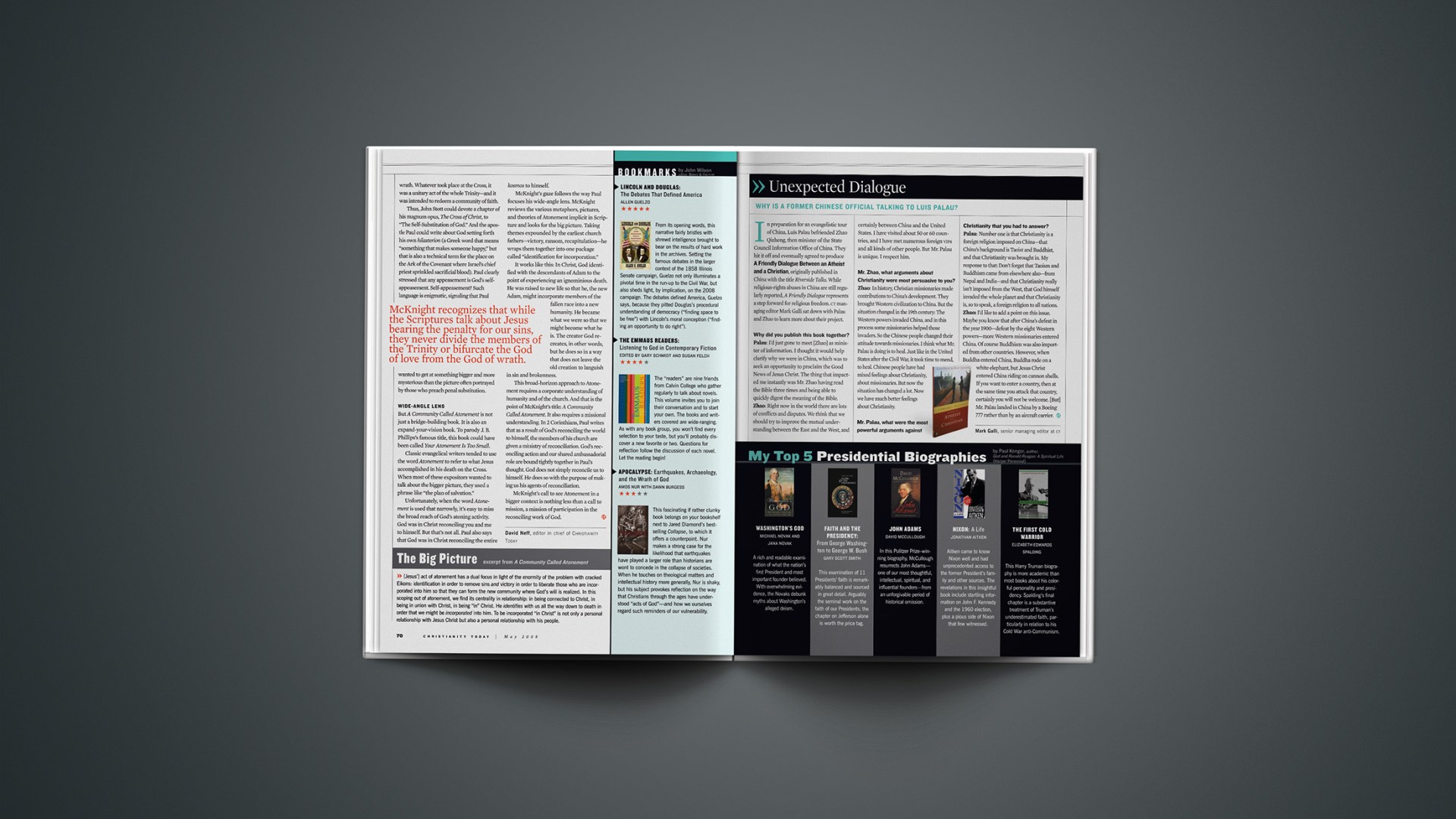Lincoln and Douglas: The Debates That Defined America Allen Guelzo (5 stars)
From its opening words, this narrative fairly bristles with shrewd intelligence brought to bear on the results of hard work in the archives. Setting the famous debates in the larger context of the 1858 Illinois Senate campaign, Guelzo not only illuminates a pivotal time in the run-up to the Civil War, but also sheds light, by implication, on the 2008 campaign. The debates defined America, Guelzo says, because they pitted Douglas’s procedural understanding of democracy (“finding space to be free”) with Lincoln’s moral conception (“finding an opportunity to do right”).
The Emmaus Readers: Listening to God in Contemporary Fiction Edited by Gary Schmidt and Susan Felch (4 stars)
The “readers” are nine friends from Calvin College who gather regularly to talk about novels. This volume invites you to join their conversation and to start your own. The books and writers covered are wide-ranging. As with any book group, you won’t find every selection to your taste, but you’ll probably discover a new favorite or two. Questions for reflection follow the discussion of each novel. Let the reading begin!
Apocalypse: Earthquakes, Archaeology, and the Wrath of God Amos Nur with Dawn Burgess (3 stars)
This fascinating if rather clunky book belongs on your bookshelf next to Jared Diamond’s bestselling Collapse, to which it offers a counterpoint. Nur makes a strong case for the likelihood that earthquakes have played a larger role than historians are wont to concede in the collapse of societies. When he touches on theological matters and intellectual history more generally, Nur is shaky, but his subject provokes reflection on the way that Christians through the ages have understood “acts of God”—and how we ourselves regard such reminders of our vulnerability.
Copyright © 2008 Christianity Today. Click for reprint information.
Related elsewhere:
John Wilson is editor of Books & Culture.
Previous Bookmarks are in our books section.










